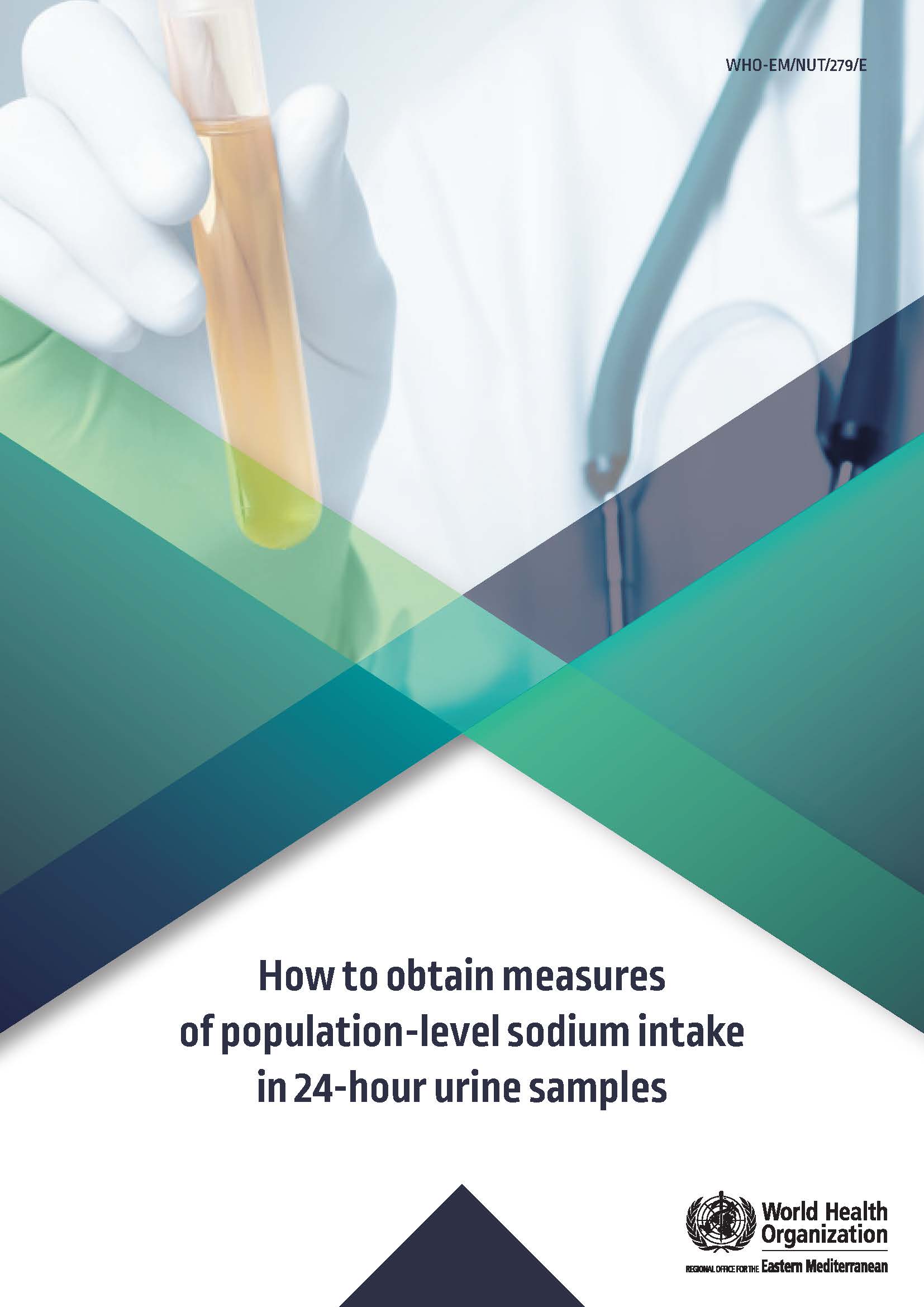
Unbalanced intakes of sodium and potassium among Tunisian adults: a cross‐sectional study
Publication date: 2021
The prevention and management of hypertension are associated with a lowering of sodium intake. The present study aimed to evaluate the sodium and potassium intake levels of the Tunisian population through measurement of 24‐hour urinary sodium excretions. This study demonstrates that a high sodium intake and inadequate potassium intake were found among adult populations living in urban cities. According to the WHO, a Tunisian strategy was launched aiming at the reduction of salt intake, and the reduction of sodium content in bread was adopted as the main procedure.

How to obtain measures of population-level sodium intake in 24-hour urine samples
Publication date: 2018
There is compelling evidence of the direct relationship between salt consumption and blood pressure. WHO is coordinating initiatives globally to reduce dietary salt intake at the population level. This document provides an essential salt intake measurement tool for countries in the Eastern Mediterranean Region that want to start, contribute to, and share information on dietary salt reduction initiatives. The protocol is primarily intended for principle investigator(s) of studies of salt/sodium, potassium and iodine intake. Parts of the document are also intended for field staff who are conducting the surveys.

Guideline: potassium intake for adults and children
Publication date: 2012
This guideline provides the first global, evidence-informed recommendations on the consumption of potassium to reduce noncommunicable diseases (NCDs) in most adults and children. These recommendations can be used by policy-makers, technical and programme planners in the government and various organizations involved in the design, implementation and scaling-up of nutrition actions for public health and prevention of NCDs, to assess current potassium intake levels relative to a benchmark and develop measures to increase potassium intake, where necessary, through public health interventions including, but not limited to, food and product labelling, consumer education, and the establishment of food-based dietary guidelines.



